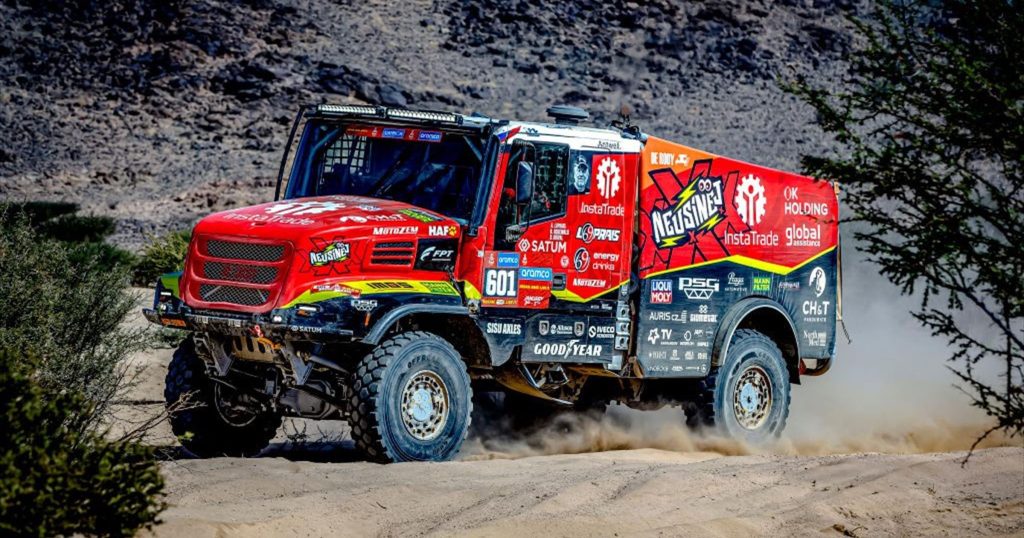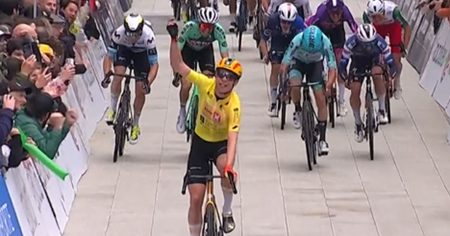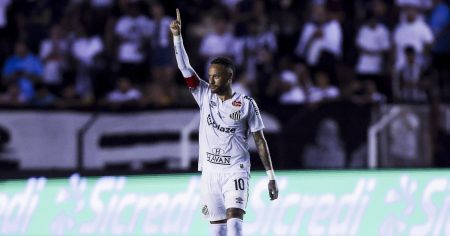Ales Loprais, a prominent figure in the Dakar Rally, carries the legacy of his uncle, Karel Loprais, a six-time champion of the grueling off-road endurance race. The younger Loprais, also a seasoned Dakar competitor, often reflects on the profound impact his uncle had, not only on his own career but also on the evolution of the Dakar Rally itself. Karel Loprais, nicknamed “Monsieur Dakar,” became synonymous with the race, demonstrating an unparalleled mastery of navigation, vehicle control, and strategic thinking in some of the world’s most challenging terrains. His dominance in the truck category, particularly throughout the 1980s and 1990s, cemented his legendary status and inspired generations of racers, including his nephew. Ales Loprais acknowledges the weight of his family name and the inherent pressure to live up to the high standards set by his uncle. He views it not as a burden, however, but as a motivating force, driving him to push his own limits and strive for victory in the spirit of Karel.
Karel Loprais’s contributions to the Dakar Rally extend beyond his individual achievements. He was instrumental in popularizing the truck category, proving that these massive vehicles could conquer the diverse and demanding landscapes that characterized the race. His innovative approach to truck preparation and driving technique, combined with meticulous navigational skills, set a new benchmark for competitors. Karel was known for his ability to extract maximum performance from his Tatra trucks, consistently demonstrating their reliability and resilience in extreme conditions. He fostered a deep understanding of desert driving and navigation, emphasizing the importance of teamwork, meticulous planning, and adapting to the ever-changing challenges of the Dakar. His methods and strategies became a blueprint for subsequent generations of rally-raid drivers, shaping the very nature of truck competition within the Dakar.
Ales Loprais, growing up amidst the fervor surrounding his uncle’s Dakar exploits, absorbed a wealth of knowledge and inspiration. He witnessed firsthand the dedication, discipline, and mental fortitude required to succeed in such a demanding event. He learned the importance of meticulous preparation, from vehicle maintenance to route planning, understanding that victory in the Dakar is as much a product of meticulous strategy as it is of driving prowess. Karel Loprais’s influence extended beyond technical expertise, instilling in his nephew a deep respect for the desert and the inherent dangers of the rally. He emphasized the importance of careful risk assessment, patience, and the ability to persevere through adversity, qualities that are essential for survival and success in the challenging environment of the Dakar.
The relationship between Ales and Karel Loprais transcended that of simply uncle and nephew. It was a mentorship forged in the crucible of motorsport, where experience and wisdom were passed down through generations. Karel acted as a guide and advisor to Ales, sharing his insights into the intricacies of the Dakar Rally. He imparted not only technical knowledge but also valuable life lessons, emphasizing the importance of humility, resilience, and respect for the competition. Ales, in turn, embraced his uncle’s teachings, incorporating them into his own approach to the Dakar. He understands the significance of upholding the family legacy, striving to embody the same spirit of determination and sportsmanship that defined his uncle’s career.
The impact of Karel Loprais’s legacy continues to resonate within the Dakar Rally community. His six victories stand as a testament to his exceptional skill and unwavering commitment to the race. He is remembered not only for his triumphs but also for his sportsmanship, humility, and respect for his fellow competitors. His influence on truck racing, particularly within the Dakar, is undeniable. He paved the way for future generations of drivers, inspiring them to push the boundaries of what was possible in these powerful machines. Ales Loprais, carrying the torch forward, strives to honor his uncle’s memory by competing with the same dedication and passion that made Karel a legend.
Ales Loprais recognizes the significance of preserving the history and heritage of the Dakar Rally. He actively participates in events and initiatives that celebrate the legacy of past champions, including his uncle. He views it as a responsibility to share the stories and experiences of those who shaped the race, ensuring that their contributions are not forgotten. For Ales, the Dakar Rally is more than just a competition; it’s a testament to human endurance, resilience, and the pursuit of excellence. It’s a challenging arena where legends are forged and legacies are built, and where the spirit of Karel Loprais continues to inspire. He understands that the Dakar is a continuous evolution, with new technologies and challenges emerging each year, but the fundamental principles of resilience, strategic thinking, and respect for the environment remain unchanged. These are the values instilled in him by his uncle, values he carries with him every time he tackles the dunes and deserts of the Dakar Rally.














